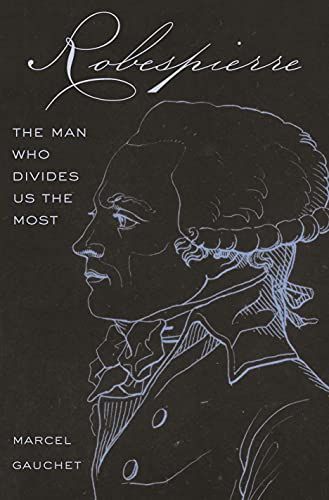
Robespierre The Man Who Divides Us the Most
"Robespierre is arguably the most controversial and contradictory figure of the French Revolution. He still inspires more passionate debate than any other protagonist of those dramatic and violent events of the late eighteenth century, and he still retains both unconditional admirers as well as fierce critics. The fervor of those who defend the "incorruptible" is met with revulsion of by those invoke the bloodthirsty "tyrant". Robespierre, in fact, is the embodiment of the two competing memories of the Revolution, much as 1789 and 1793 still symbolize the two opposing faces of this foundational event: the glorious accession of liberty, on the one hand, and the excesses which terminated in the Terror, on the other. Only Robespierre is the link between the two. He championed the rights of the people in the Assembly and then through his Montagnard Convention provided the guillotine. In this extended essay, eminent French historian Marcel Gauchet reflects upon the insight that the contradictions of Robespierre were simply the contradictions of the French Revolution itself, in no small part because Robespierre was in his way the purest incarnation of the Revolution. He was neither the defender of the rights of man only later corrupted by power, nor the tyrant who betrayed the principles of the Revolution. He was both: the figure most associated with the founding of modern French democracy was also the first tyrant of that democracy. Gauchet argues that in Robespierre the transition from opposition to government was the embodiment of the tragedy inherent in the Revolution, as its own prophetic ideals were impossible to implement. To understand Robespierre, then, is really to understand the tragedy of modern democracy, for which the descent into tyranny is a perpetual danger"--